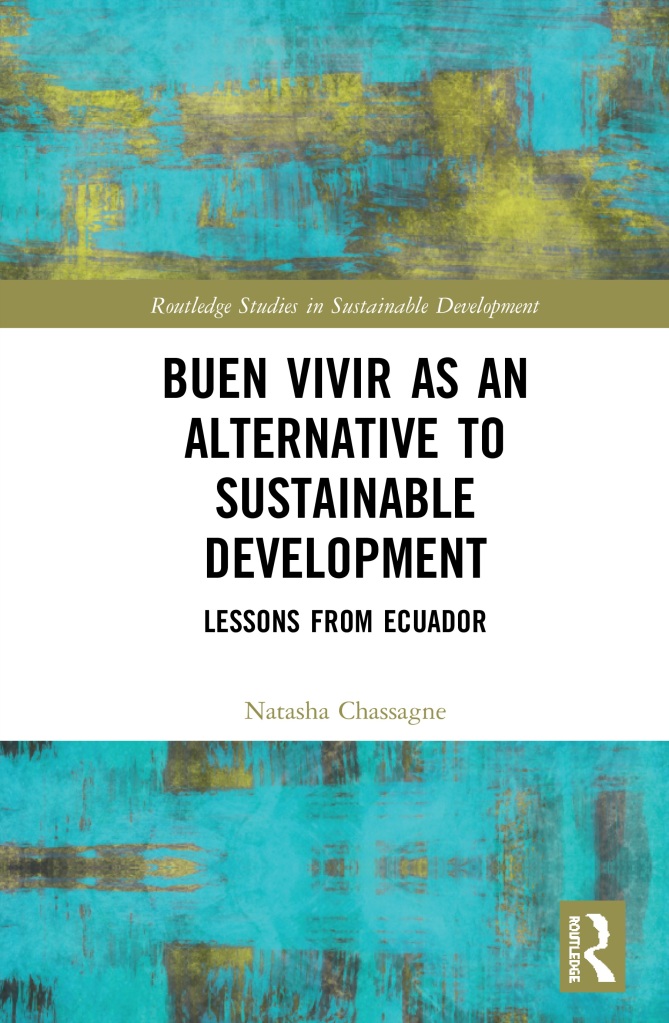Writing Awards

‘A Better Anthropocene’: New Philosopher Writers’ Award XXVIII ‘Climate’, runner-up, November 2020
Book
Buen Vivir as an Alternative to Sustainable Development: Lessons from Ecuador

Until recently, the concept of Buen Vivir has only been loosely articulated by practising communities and in progressive policy in countries like Ecuador. What it actually means has been unclear, and in the case of policy, contradictory. As such there has been a lack of understanding about exactly what Buen Vivir entails, its core principles and how to put it into practice. This book, based on extensive theoretical and field research of Buen Vivir as an alternative to sustainable development, fills that gap and offers a concrete way forward. It uses an ethnographic study in Cotacachi County, in Ecuador’s highland communities, to explore how communities understand and practice Buen Vivir. Combining this with what we already know about the concept theoretically, the book then develops a framework for Buen Vivir with 17 principles for practice.
News Media

Future, Reset, Mindful Puzzles Magazine, Issue 27, 2022
Here’s What the Coronavirus can teach us about Tackling Climate Change, The Conversation, 27 March 2020
We Can Ditch Plastic, One Nudge at a Time, The Mercury Newspaper
Finding our Voice in a Community at a Crossroads, The Mercury newspaper
People Create the Climate for the Good Life, The Mercury newspaper, 23 november 2016
Money, Wealth and the Pursuit of Happiness, The Mercury newspaper, 2 April 2016
Book Chapters
Socialising Tourism
Rethinking Tourism for Social and Ecological Justice

Chapter 12. Buen Vivir: A guide for socialising the tourism commons in a post-COVID-19 era, Natasha Chassagne and Phoebe Everingham
Rapid and uneven expansion of tourism as a response to the 2008 economic crisis has proceeded in parallel with the rise of social discontent concerning so-called “overtourism.” Meanwhile, despite decades of concerted global effort to achieve sustainable development, socioecological conflicts and inequality have rarely reversed, but in fact increased in many places. Degrowth, understood as both social theory and social movement, has emerged within the context of this global crisis. However, thus far the vibrant degrowth discussion has yet to engage systematically with the tourism industry in particular, while, by the same token, tourism research has largely neglected explicit discussion of degrowth.
Tourism and Degrowth
Towards a Truly Sustainable Tourism

Chapter 10. Buen Vivir: Degrowing extractivism and growing wellbeing through tourism Natasha Chassagne and Phoebe Everingham
Rapid and uneven expansion of tourism as a response to the 2008 economic crisis has proceeded in parallel with the rise of social discontent concerning so-called “overtourism.” Meanwhile, despite decades of concerted global effort to achieve sustainable development, socioecological conflicts and inequality have rarely reversed, but in fact increased in many places. Degrowth, understood as both social theory and social movement, has emerged within the context of this global crisis. However, thus far the vibrant degrowth discussion has yet to engage systematically with the tourism industry in particular, while, by the same token, tourism research has largely neglected explicit discussion of degrowth.





